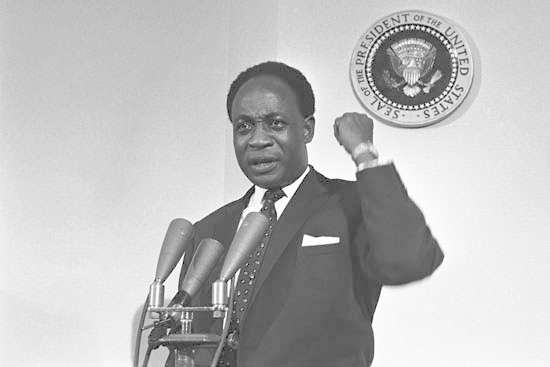African unity: Feeling with Nkrumah, thinking with Nyerere

The debate on how to unite African states has not changed significantly since Kwame Nkrumah and Julius Nyerere locked horns on the matter in the early 1960s, writes Chambi Chachage. Exploring Nyerere’s ‘step by step’ approach to building African unity in relation to Nkrumah’s desire to ‘fast track’ the creation of a Unites States of Africa, Chachage concludes that while Nkrumah’s Pan-African vision remains powerful, his approach is unrealistic even today.’ ‘To that end, I will feel with Nkrumah, yet I shall think with Nyerere’, he writes, ‘Africa must unite, albeit pragmatically’.
RECLAIMING AFRICA’S WIND OF CHANGE
The times have indeed changed. What was known as the Organisation of African Unity (OAU) is now called the African Union (AU). It is just a matter of time before we see a United States of Africa (‘USA’) in our lifetime. At least that is what Pan-Africanists envision.
Any change tends to be characterised by both discontinuity and continuity. Discontinuity of what was/is meant to be changed. Continuity of the vision associated with a mission of bringing that change.
It is such continuity that this article seeks to address. Why? Simply because the terms of the debate on how to unite African states has not changed significantly since Osagyefo Kwame Nkrumah and Mwalimu Julius Nyerere locked horns on the matter in the early 1960s.
REPOSITIONING NKRUMAH – NYERERE’S DEBATE ON UNITING AFRICA
The thoughts and sentiments of these two great Pan-Africanists on how to achieve African Unity still divide us today. There are those who side with Nkrumah. Others side with Nyerere. Yet some of us are caught somewhere in between.
CONCLUSION: RETHINKING PAN-AFRICAN NATIONALISM
My heart is with Nkrumah. I still get moved when I read his electrifying ‘Address to the conference of African heads of state and government’ on 24 May 1963 in Addis Ababa. But it is as unrealistic now, especially with Colonel Muamar Gaddafi at the helm of the AU, as it was then when Emperor Haile Selassie was the head of OAU. As such, my mind is with Nyerere. His pragmatic way is still valid today.
Thus to me the question is not Pan-Africanism or pragmatism? Rather, it is wither pragmatic Pan-African patriotism? To that end, I will feel with Nkrumah, yet I shall think with Nyerere.
Yes, Africa must unite, albeit, pragmatically!
* Chambi Chachage is an independent researcher, newspaper columnist and policy analyst.
* Please send comments to [email protected] or comment online at http://www.pambazuka.org/.
